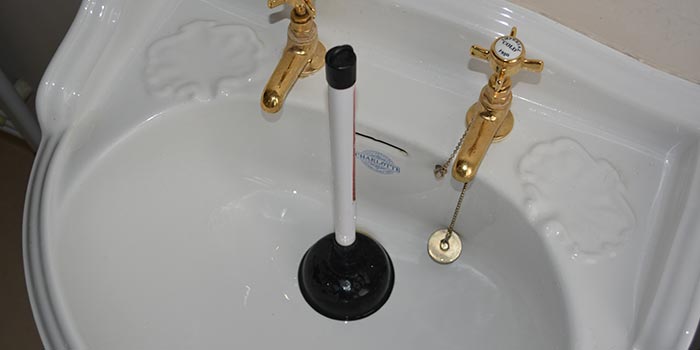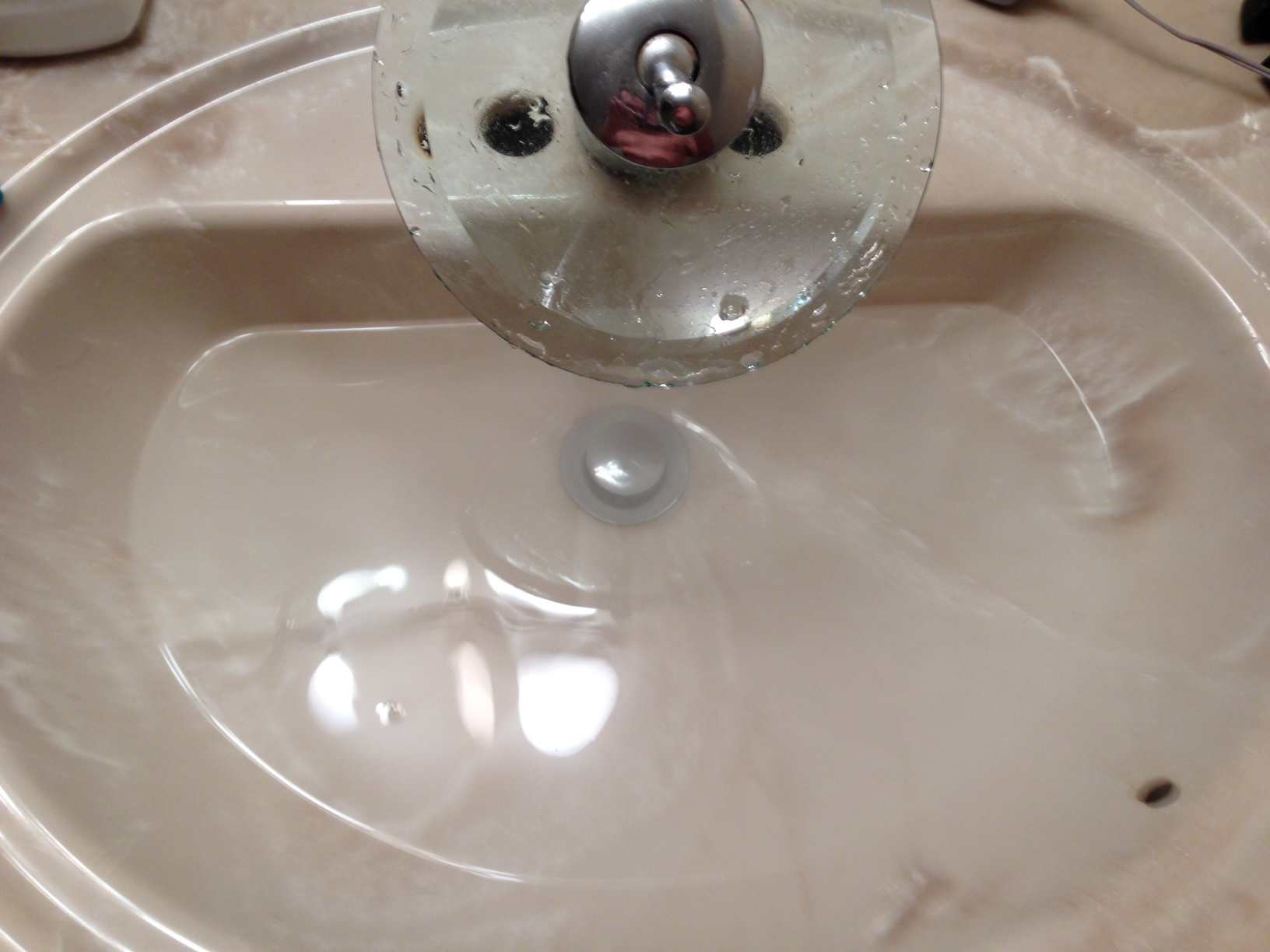Recommended Tips For Addressing A Slow-Draining Sink Fast
Recommended Tips For Addressing A Slow-Draining Sink Fast
Blog Article
Right here further down you can discover lots of sensible help and advice around Solved! How to Fix a Slow Sink Drain.

Introduction
We have actually all been there: You're brushing your teeth or washing your hands, and you discover the water merging in the sink. As opposed to quickly swirling down the drain, it lingers, turning your once-refreshing morning routine right into a small overload scene. A slow-draining sink isn't just bothersome; it's commonly a sign of larger pipes issues lurking beneath the surface. The bright side is that a lot of slow-draining sinks can be taken care of with a little know-how, a couple of standard devices, and some patience. Prepared to tackle this job head-on? Let's roll up our sleeves and dive right in.
Understanding the Reasons For a Slow-Draining Sink
Prior to you start poking around in your pipes, it aids to recognize what could be creating the slowdown. Recognizing the root cause makes it easier to select the right repair.
Common Offenders Behind Slow Water Drainage
So, what's obstructing things up? Normally, it's a mixture of day-to-day debris-- assume hair, soap scum, tooth paste deposit, and leftover food bits. Over time, these tiny bits collect and cling to the pipe wall surfaces, slowly narrowing the passage and making it harder for water to go through. In many cases, natural resource from hard water can likewise contribute to the substance, producing the best tornado for persistent blockages.
When is it Time to Act?
If you observe the water draining pipes slower than common, it's an excellent concept to interfere faster instead of later on. Waiting also long can bring about finish obstructions, unpleasant odors, and even pipe damages. If the water takes greater than a few seconds to clean out after turning off the faucet, consider it a warning and get ready to put on your DIY hat.
Devices and Materials You'll Need
The right devices make all the distinction. Thankfully, you will not require a totally equipped plumbing technician's van to do the job.
Vital Tools for Do It Yourself Repairs
A plunger is your go-to beginning factor. A little, sink-sized plunger creates suction that can displace minor blockages. For more relentless blockages, a drain snake (often called a plumbing technician's auger) works marvels. A set of handwear covers, a flashlight, and possibly a pair of safety safety glasses are additionally helpful.
Recommended Cleaning Solutions
Moderate recipe soap and hot water can help break down greasy build-up. A mixture of baking soda and vinegar is a tried and true natural home remedy, and enzymatic cleaners offer an even more environmentally friendly method. Maintain chemical drain cleaners as a last resort, as they can be extreme on your pipelines.
Security First: Precautions and Prep work
Before you launch into unclogging setting, consider security. You're dealing with potentially dirty water and particles, so slip on a pair of gloves. If you're using chemical cleansers, make sure the space is well-ventilated and comply with the instructions on the tag.
Safety Equipment and Work Area Configuration
Lay down some old towels or dustcloths around the sink area to catch dashes. Remove any kind of items that could enter your way, like soap dispensers or toothbrush holders. Ensure you have excellent illumination-- grab a flashlight if needed.
Step-by-Step Overview to Fixing a Slow-Draining Sink
Now, let's enter the nitty-gritty. This detailed process will direct you through simple strategies to recover your sink's drain.
Action 1: Get Rid Of and Clean the Stopper
Typically, the stopper (that small plug you lower to block water) is the initial offender. Remove it very carefully and clean off any type of hair or substance trapped around its base. Rinse it extensively prior to putting it back in position.
Action 2: Make Use Of a Bettor to Remove Debris
Got that bettor all set? Placement it over the drain and give it a few company pumps. The idea is to create suction that can loosen up any blockage. If you see little bits of debris floating up, you get on the right track.
Step 3: Try a Drain Serpent or Wire Hanger
If the bettor doesn't work, it's time to highlight the drainpipe snake. Delicately feed it right into the drainpipe and twist as you go. You may really feel some resistance-- that's most likely the obstruction. Maintain twisting and pulling up until you eliminate the blockage. If you don't have a drain snake, an aligned cable hanger can work in a pinch.
Tip 4: Apply a DIY Drainpipe Cleanser
An all-natural cleaner made from baking soft drink and vinegar can break down residual gunk. Pour half a cup of cooking soft drink right into the drain, followed by half a mug of vinegar. Let it fizz for around 15 mins, then flush with warm water. This chemical reaction frequently does marvels for minor obstructions.
Step 5: Reassemble and Test the Sink
Placed everything back with each other and run the tap. Does the water currently swirl away at a commendable rate? If yes, give on your own a pat on the back. If not, do not despair-- there are still a few more dress up your sleeve.
Alternative Techniques for Stubborn Clogs
Not all obstructions are created equal. If your sink still rejects to cooperate, take into consideration these alternate services.
Baking Soda and Vinegar Approach
We currently touched on this, but it deserves noting once again. This gentle, eco-friendly method is safer than chemical cleaners and commonly quite efficient.
Chemical Drain Cleansers
Enzyme-based cleaners utilize all-natural microorganisms to absorb raw material. They're an outstanding choice if you're aiming to prevent severe chemicals. Just remember, they may take a bit longer to work their magic.
Chemical Drain Cleaning Company: Advantages And Disadvantages
Chemical cleansers can blast via hard clogs fast, but they're not without drawbacks. They can create warmth and fumes, damages pipelines if used exceedingly, and present ecological dangers. Use them moderately, and constantly adhere to the instructions meticulously.
Safety Nets to Keep Your Sink Flowing
Avoidance is the best remedy. By adopting a few simple practices, you can keep your sink from reducing in the first place.
Regular Cleansing Behaviors
Clean down the sink basin and component area on a regular basis. Get rid of hair or food bits prior to they have an opportunity to wash down the drain.
Avoiding Unsafe Materials Down The Tubes
Hesitate before disposing coffee premises, oil, or coarse veggie scraps down the sink. These culprits cling to pipe walls, producing clogs over time.
Routine Maintenance Checks
Set up a quick regular monthly evaluation. Run warm water via the sink for a couple of mins, taking note of the circulation. If it appears slow-moving, act quickly prior to it comes to be a full-on clog.
When to Call an Expert Plumber
Sometimes, regardless of exactly how difficult you attempt, that obstruct just won't budge. That's when it's time to bring in the pros.
Indications That Show an Extra Significant Issue
If your sink drains pipes slowly in spite of multiple efforts, or if you discover water backing up in other fixtures (like your shower or toilet), you might have an extra serious plumbing issue lurking deeper in the system.
Stabilizing Do It Yourself Efforts with Specialist Help
While do it yourself can conserve you money and supply a feeling of accomplishment, there's no shame in calling an expert. A specialist plumbing can assess your entire plumbing configuration, making sure there's no underlying damages or long-term trouble that could cost you extra down the road.
Comparing Costs and Long-Term Solutions
Before deciding, take into consideration the big picture. A low-cost, quick fix could resolve the trouble temporarily, yet buying an extra long-term solution can save you money and anxiety in the long run.
Considering the Expenses of Do It Yourself vs. Professional Repairs
DIY fixes usually set you back little bit greater than the cost of a plunger or a container of cooking soda. Specialist solutions, on the other hand, included a price tag but might stop repeated problems and costly repairs later on.
Purchasing Quality Fixtures and Upgrades
If your sink's design contributes to constant clogs, it might be worth updating to higher-quality fixtures or changing the plumbing layout. Consider this an investment in your house's capability and convenience.
Final thought
A slow-draining sink can feel like a small irritability, however it's usually an indication that your plumbing requires a little TLC. By recognizing the source, using the right tools and techniques, and dedicating to easy preventive measures, you can keep your sink streaming openly. And when all else fails, never ever think twice to employ a professional-- your home's pipes deserves the financial investment in care and upkeep.
Three Common Ways to Fix a Slow Drain
Baking Soda Method
Boil a full pot of water. Measure out cup of baking soda and pour it down the drain. Then take cup of the magical cleansing substance known as white vinegar and drop that down there too. Allow the mixture to fizz in the drain for five minutes as the vinegar and baking soda combine. Now dump in that whole pot of boiling water. This combination of cleaning substances should clear out anything that is causing your sink to drain slowly. If it doesn t...
Zip-It
If the baking soda method doesn t clear out your drain, it may be because a significant amount of hair and/or other debris has collected there and you need to remove it. Purchase a Zip-It tool at any home improvement or hardware store and insert it into your drain. It will catch any collected hair or debris that s blocking the flow of water. Pull it out. If it s got a big clump of hair, etc. on the end, you ve probably got your culprit.
Drain Cleaner
If these methods don t work, there is the standard drain cleaner that you can also buy in a hardware store or even your local grocery store. It s better if you can use a household solution, but these drain cleaners often work in a pinch. They re very simple to use. You generally just dump them in your drain and wait. If even this method is not effective, it may be time to call the plumber.
https://www.mrrooter.com/oneida/about-us/blog/2017/july/three-common-ways-to-fix-a-slow-drain/

As an avid reader about , I think sharing that piece of content was smart. Don't hesitate to take a moment to promote this page if you liked it. Thank-you for taking the time to read it.
Click Here Report this page